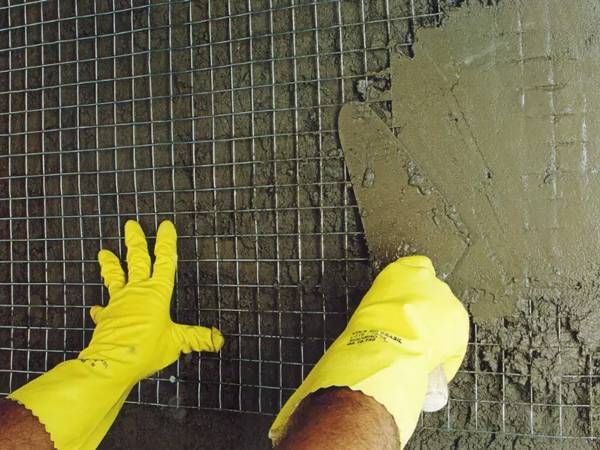Fiberglass Mesh Screen for Cement Reinforcing: Enhancing Durability and Strength

In the dynamic construction world, introducing fiberglass mesh screens in cement reinforcing has marked a significant advancement, revolutionizing traditional building practices. This innovative material, known for its exceptional strength and durability, has become a cornerstone of modern construction methodologies. Fiberglass mesh is redefining the standards of structural integrity and efficiency, offering a compelling blend of corrosion resistance, lightweight properties, and environmental sustainability. This blog delves into the transformative impact of fiberglass mesh in cement reinforcement, exploring its advantages, applications, and pivotal role in shaping the future of construction. Join us in uncovering how fiberglass mesh sets new benchmarks in building robust, durable, and sustainable structures.
Understanding Fiberglass Mesh
Fiberglass mesh, a product woven from fiberglass threads, is known for its exceptional strength and durability. This mesh is used extensively in construction, particularly for reinforcing cement and other composite materials. Unlike traditional metal reinforcing materials, fiberglass mesh is resistant to rust and corrosion, making it a superior choice for longevity.
The Role in Cement Reinforcement
Cement structures, while robust, can be prone to cracking and weathering over time. Fiberglass mesh screens are integrated into cement to prevent cracks from spreading and enhance structural integrity. The mesh acts as a supportive skeleton within the cement, distributing stress and strain evenly and reducing the risk of structural failures.
Advantages of Fiberglass Mesh in Cement Reinforcement
1. Corrosion Resistance:
Unlike metal reinforcements, fiberglass mesh does not rust. This resistance to rust makes it ideal for use in harsh environments, including coastal areas or structures exposed to chemicals.
2. Strength and Durability:
Fiberglass mesh significantly increases the tensile strength of cement structures. This added strength is crucial in high-stress applications such as flooring, foundations, and walls.
3. Lightweight:
Being remarkably lighter than traditional metal reinforcements, fiberglass mesh reduces the structure's overall weight. This reduction is advantageous in large-scale constructions where weight management is crucial.
4. Flexibility and Versatility:
The flexibility of fiberglass mesh makes it easy to apply in various shapes and sizes. This versatility is particularly beneficial in complex architectural designs.
5. Cost-Effectiveness:
Fiberglass mesh can be more cost-effective compared to traditional metal reinforcements. Its durability and low maintenance requirements contribute to long-term savings.
6. Thermal Insulation:
Besides reinforcement, fiberglass mesh offers thermal insulation properties, contributing to building energy efficiency.
7. Environmental Impact:
Fiberglass mesh is an environmentally friendly alternative to metal reinforcements. Its production process is less energy-intensive, and the material is recyclable.
Applications in Modern Construction
Fiberglass mesh screens have found their place in numerous construction applications, including:
•Reinforcing concrete in building foundations and walls.
•Strengthening floorings, especially in industrial and commercial buildings.
•Use in roads and bridges where durability under heavy traffic is critical.
•In precast concrete elements, offering flexibility and strength.
Installation and Best Practices
Installing fiberglass mesh in cement is straightforward but requires precision to ensure optimal reinforcement. The mesh should be placed at the correct depth within the concrete to avoid exposure to the surface. Overlapping the mesh sheets correctly is crucial to maintain the integrity of the reinforcement.
Future of Fiberglass Mesh in Construction
The future of construction sees an increasing shift towards materials that offer sustainability, strength, and cost-effectiveness. Fiberglass mesh, with its remarkable properties, is at the forefront of this shift. Continuous innovations in the composition and application of fiberglass mesh are anticipated, making it an even more integral part of modern construction techniques.
Challenges and Considerations
While fiberglass mesh offers numerous advantages, it’s essential to consider its limitations. For instance, it has lower heat resistance compared to metal reinforcements. Therefore, its application in high-temperature environments should be carefully assessed.
Conclusion:
Fiberglass mesh screen for cement reinforcing represents a significant advancement in construction materials. Offering an unparalleled combination of strength, durability, and versatility; it addresses many of the limitations of traditional reinforcement materials. As the construction industry continues to evolve, the role of fiberglass mesh in creating resilient, efficient, and sustainable structures becomes increasingly vital. Its continued adoption and integration into various construction projects underscore its importance in the ever-evolving world of construction and architecture.
